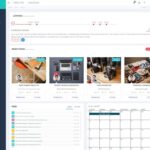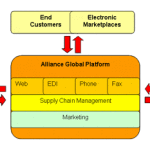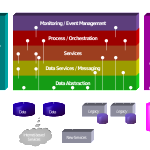The future of Integration is not in Integration platforms
I have spent most of my adult life connecting enterprise applications using large, expensive integration tools like BizTalk, Sterling commerce, IBM ESB – you name it. Customers come to us saying that they want to integrate a certain functionality (usually represented by a screen) with another application/vendor/standard etc. We then go about detailing API, identifying data, mapping them. Then we go about implementing these in a largely platform specific language and hosting it in a bulky-all encompassing platform. The typical integration interface costs the customer 30-50k$, several months and many years of support after that.
Look at recent trends however, I think that integration platforms are set to go through what BI has gone through in recent years – that is a consumerization of the toolset. For those of you following the surge of user-driven-reporting in BI, you will recall that techies always argued that BI was just too complex for end users to handle it and that they could state requirements, that would be synthesized by the developers and then implemented in large centralized platforms. Yet strong demand and innovation is customer-empowering toolsets has now largely made conventional reporting tools redundant. I think the same is all set to happen in the integration space. I think the future will be
- screen driven (not just api driven) integrations with functionality embedded right into html front ends (just like the user views it)
- user driven mapping tools. simple ones. complex functionality will get handled by community and domain specific libraries
- simplified middleware with redundancy, once only delivery etc implemented on the end-points and not in the middleware
- Tools like Zapier and IFTTT are good examples of this, though they are still very B2C focused.
I have some product ideas around this that I am looking to partner up with someone on. I am sharing this post in the hope of feedback on the idea so thoughts and comments are welcome
Related Posts
Comment (1)
Comments are closed.








mike ashley
April 23, 2016I would love to think that the Users could handle it, but… There are just so many variables that make normalizing the connection very difficult. Over and over, we try to make reusable code, and over and over we continue to have to customize due to specific requirements. There are just so many different Applications, ERP Systems, DBs, etc, that normalization sounds like a daunting task.
I agree that the more the user can dictate without having to get the developers involved the quicker and cheaper these integrations can be obtained.